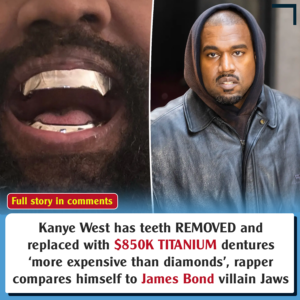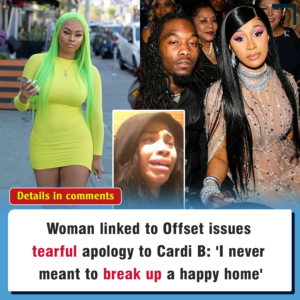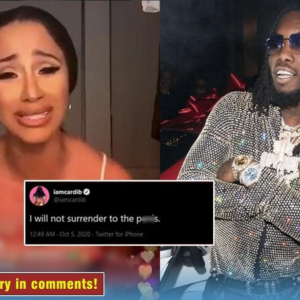It’s (Still) Punk Rock and Roll to Avril Lavigne
The music icon on her new album, the lasting legacy of Let Go, and finding love again.

RYAN MCFADDEN
“I’m trying to find an orange that doesn’t fade,” Avril Lavigne says with a laugh, stroking fistfuls of her hair.
Her lower layers are dip-dyed pale citrus, sticking out from her otherwise bleach-blonde head. Her “hair girl” did the dye job in her California home as Lavigne sat in the kitchen, ends covered in tin foil. Now the dye is fading like a sunset. Lavigne’s hair has been a marker of her evolution as a musician ever since she rose to stardom in the early 2000s, as a pin-straight dirty blonde teen singing about Sk8er Bois. She’s had black under layers in her Under My Skin era and streaks of hot pink on The Best Damn Thing album cover. She’s done hints of green (even green and pink together), girly platinum curls, and blonde highlights so bright they’re basically white. The orange, then, is a bold choice but still in character. New, but familiar.
“These are the album colors, orange and black,” she explains. The latter could refer to the black graphic hoodie she’s wearing, or the Zoom background behind her, or her signature heavy eyeliner. Either way, she’s committed to the color theme of Love Sux, her seventh album, which dropped Feb. 25. On the cover, she wears an all-black outfit and holds up black balloons against a red-orange backdrop.
Love Sux is Lavigne’s first album since 2019, and arrives almost 20 years after her smash debut Let Go, which gave us hits like “Complicated.” While her last project, Head Above Water, was a pensive reflection on her struggle with Lyme disease, this one finds her back in her rebellious pop-punk roots. One listen and you’ll feel like flat-ironing your side bangs and lining your arms with rubber bracelets again. The 12-track LP bursts with breakup anthems and a high energy that manifests in hyper drums, head-bopping electric guitar, and don’t-give-a-damn lyrics. “I don’t got time motherfucker, don’t ruin my life,” she warns potential suitors in “Break of a Heartbreak.” Blink-182 lead singer Mark Hoppus and Machine Gun Kelly are featured on the record, and she wrote it with artists like Travis Barker, who launched the label she’s now signed to, as well as now-boyfriend Mod Sun.
If Avril Lavigne, now 37, was ever going to make a comeback, there’s no better time than now. Nostalgia for Y2K and the emo aughts is at its peak, aesthetically and musically. The hottest celebrity couples are Barker and Kourtney Kardashian and Kelly and Megan Fox. (Both pairs were at Lavigne’s concert on the album’s release day.) Platform boots, rocker plaids, and leather pants are in again. Younger artists like WILLOW, Olivia Rodrigo, The Linda Lindas, and Meet Me @ the Altar are putting their own spin on the genre. And the explosive craze over the When We Were Young festival lineup—which includes OG favorites like My Chemical Romance, Paramore, and Lavigne herself—only confirmed that we’re longing for that era more than ever.
“I feel like pop-punk is a spirit, it’s an attitude, it’s middle fingers up high in the air,” Lavigne explains. “It’s an aggressive music where you can just say whatever you want—you don’t have to hold anything in. It’s a lot of fun, and that’s always been the spirit and the tone and vibe of all my concerts throughout the years. Even if my style or music has pivoted a bit.”
That’s the thing about trends: Those of us in the mainstream have dabbled in punk, moved past it, and are only revisiting it now; “But for me,” Lavigne shrugs, “I’ve always been kind of doing it.” When she first came on the scene, naysayers would argue that Lavigne didn’t write her own music or that she was just co-opting the punk rock sound and skater aesthetic, but two decades later, she’s still standing.
At the age when most girls are going to prom or learning to drive, Lavigne was making Let Go. When it was released in 2002, it would go on to peak at number two on the Billboard 200 chart—somewhere alongside Eminem, The Chicks, Ashanti, and Michelle Branch—and earn her eight Grammy nominations including Best New Artist. Her next two albums, 2004’s Under My Skin and 2007’s The Best Damn Thing, both debuted at number one.
In the early 2000s, when the hottest girls in music were feminine pop stars like Britney, Christina, and Beyoncé, Lavigne made her mark as the tomboyish girl next door. The Napanee, Ontario native stood out in a white tank top, army cargo pants, and loose neckties. She sang about posers who pissed her off, star-crossed love between skaters and ballerinas, and longing for attention and love, all with the palpable angst, innocence, and desperation of a teenager.

Lavigne performing in New York in 2002.





